Estimated Read Time: 16 Minutes

When you buy products for your employees, how do you decide what to get?
Price? That’s typical but shouldn’t be the sole factor.
Because you like it? What you like might not represent the majority of the recipients.
Because it’s useful? Useful to whom? A retiree most likely won’t need dishware or a blender; they will just give it away, likely to a child or grandchild. My mother would not appreciate some modern tech gift because she wouldn’t know how to use it, but my brother would.
The point is, when was the last time you looked at how your recipients see your gift? Does it mean anything to them? Or does your gift come off as a slap in the face?
That’s a nightmare situation to say the least.
Make Sure the Gifts Are Appropriate & Not Offensive
Let me tell you a story. I worked at a company for a number of years who would give gift cards as recognition. I wouldn’t advise giving gift cards all the time, but it wasn’t bad to basically get free money to a place you would go to anyway.
As long as it’s a gift card to something appropriate, right?
Well, one of my friends at the company was a well-known Vegan. For work lunches, she would request Vegan alternatives or she would bring in her own meals so she would not be a burden. It was common knowledge by the whole company. She had been there just shy of a year, but everyone knew her and her bubbly personality was always appreciated.
Now, she was excited because she got a big sale, as well as went above and beyond in serving that new customer. She was going to get recognized for this accomplishment. She worked rather hard on this deal for a while.
She was handed a card and inside was a gift card… to Omaha Steaks.
She was surprised at first. Then upset. A well-known Vegan got a gift card to a meat company?
She ended up giving the card to her dad, notified HR her disgust, and ended up quitting not too long after. Not only was the gift card a fail, it resulted in losing a good employee, who was well-connected in the community.
And she is sure to tell others about her experience at that company.
Cause and Effect
And who are the candidates (like the one to replace the lady who just left) going to listen to?
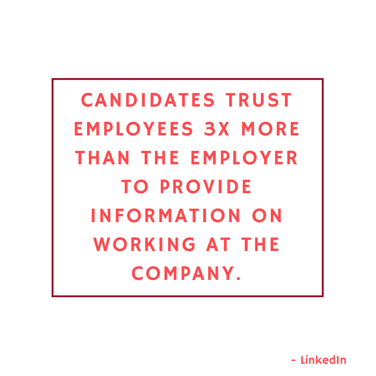
That’s right; they are going to trust her warning that this company does not properly recognize employees. That they don’t know or truly care about their people.
Oh, you can try to tell yourself that she might be a fluke. Not everyone talks about their candidate or employee experience.
But you’re wrong.

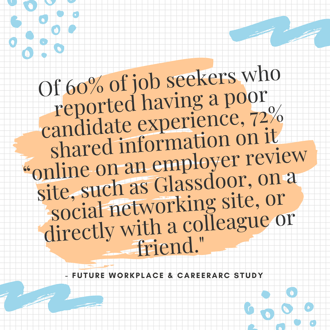
And guess what, that will affect your hiring rate.
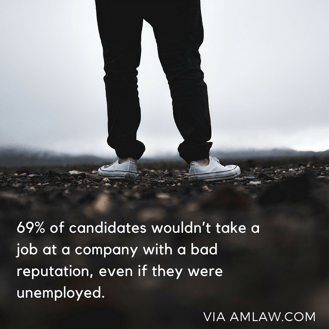
Ouch. So, you might miss out on qualified, even star employees, because you didn’t know how to appropriately recognize an employee.
Cause: Poor employee recognition.
Effect: Lose top employees and your hiring pool takes a hit.
Make Sure Your Recognition Is Meaningful
Employees want to be recognized. They work hard on projects, hit deadlines, push themselves, and even miss some essential family time. Work life balance is not as clean cut as many articles claim. Even if you can’t take your work home with you, you still walk away stressing, worrying, and thinking about work.
Work takes up a large portion of your employees’ lives, so of course they will want some sort of satisfaction from it. And guess what, by recognizing employees, they start feeling engaged and satisfied.
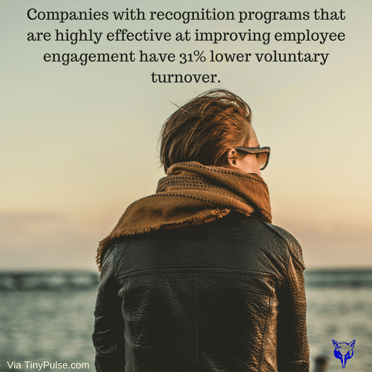
Engaged employees are productive employees.
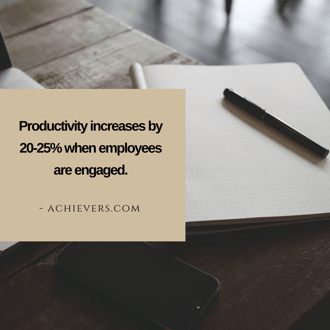
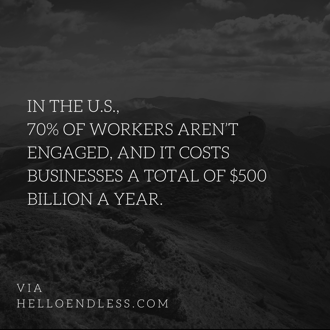
Yes, engaging employees is that important; unless you want to be losing money.
So that means employees want recognition, yes, but what type of recognition?
What about recognition that is meaningful and relevant to them? Don’t give a Vegan a gift card for a steak place. Don’t give a person who is retiring a set of dishes.
Giving Recognition
No, they want something that makes sense for them.
Whether that award is a physical gift, a cash equivalent, or is symbolic, that is up to you.
A Physical Gift
A physical gift can be anything from a blender to a t-shirt. It could be a nice, new speaker system or a fancy pen. It can be a luxury item or another trinket that they can get from the discount store. Just keep in mind, what you give to your employees reflects you and your brand.
In addition to having to understand that the gift has to be relevant to them, you also have to keep in mind that for physical, commodity-style gifts, your employees know their worth. Employees know that shirt was a few bucks, that pen was a little more than a few cents, that blender was from $30-80, and that fancy speaker was around $200. You have commoditized your gift. You have told your employees what their work was worth. They will be able to gauge how much you value their hard work and what you’re recognizing them for.
You better hope they find your gift relevant and meaningful, or you just wasted your money and insulted them.
I’ve seen this, too. “They gave me a set of dishes? What am I going to do with this? I already have my dish set. I’m 43. What a useless gift. Is this all my hard work amounted to? A $45 dish set that I didn’t need?”
Ouch.
A Cash Equivalent
But what about cash equivalent recognition?
Well, this is where gift cards, cash bonuses, and other money-related gifts go.
The recipient sees it as “free money.” Money that they earned or basically that the company gave them enough to do something that they were already doing.
Now, most people love money, they appreciate that bit of a bonus, assuming that the amount isn’t an insult (who remembers how the Griswold's took their “Christmas Bonus?”).
The thought is, “Yeah, I can pay for my latest medical bill with this.” Or “Yeah, looks like I’m having a nice meal tonight.” But how much do you remember the bonus after spending it? If you’re like most people, you don’t think about it until the same time next year, wondering if you eared it again this year and how much it will be. Bonuses can even hurt productivity according to this article.
You see? Bonuses become a standard, not a gift anymore.
Finally, even though money is important and certainly a large factor (we’ve all got to eat and pay rent), it is not always the best motivator or way to recognize employees. A study conducted by Princeton economist Angus Deaton and psychologist Daniel Kahneman backs this up. They demonstrated that money doesn’t contribute to our overall happiness above $75,000.

But what about gift cards and other cash equivalents? Well, there’s the positive side, which will still be the, “Yeah! Free meal/money” thought process. Or there’s the negative, which could either go like the cash or physical gifts above, or worse; like the story I told you about my Vegan friend.
Symbolic Recognition
Where does that leave us? With symbolic recognition.
Symbolic means that there isn’t a specific price tag that employees can throw on it. Instead, for it to be truly symbolic, it has to be meaningful and personal to even hit on the symbolic threshold.
Whether you are recognizing an employee anniversary, a project completion, perfect attendance, or a sales achievement, employees want to be recognized for their hard work.
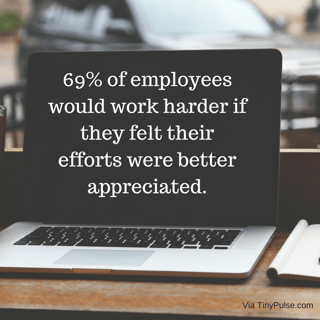
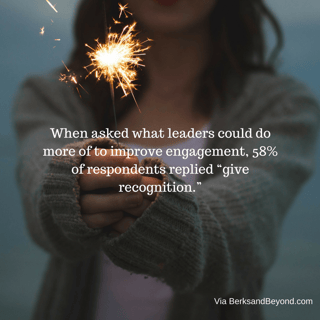
So rather than giving the latest gadget or a cash bonus, take the time to represent your company, what your employee did to deserve the recognition, and other special points.
This can be done by creating those spray-painted dollar store trophies that college kids give out, which is fun and might make sense for startups trying to have a cool and fun company culture.
But that doesn’t make as much sense for older, more established companies. This is not to say that you still can’t have fun with your trophies, but after that “silly culture” phase for a startup, employees start expecting more. They start wanting to be properly recognized.
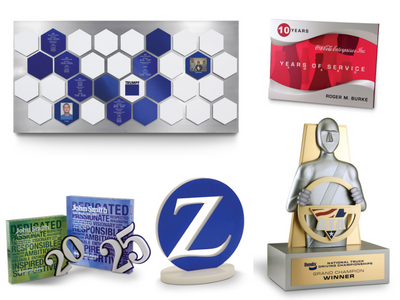
That’s where awards, recognition, commemoriatves, and branded displayables come in.
If done wrong, it can be a flop – this is when the symbolic recognition isn't useful, is boring, you have to find room for it on your self/closet/desk/box in your crawl space, and it’s just another banana. Not exactly what you want to represent your company.
When done right, it wows employees, makes others want to strive for that recognition, empowers employees, and engages them. They feel proud to show it off and talk about it.

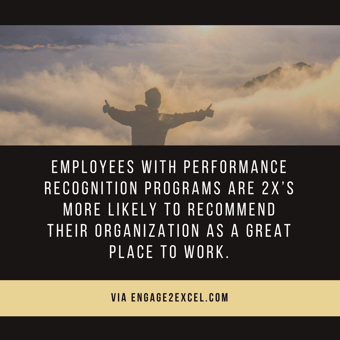
Cause: Recognizing employees with thoughtful and meaningful recognition.
Effect: Increase in employee retention, employee engagement, a positive company culture, and likeliness of recommending their work to others.
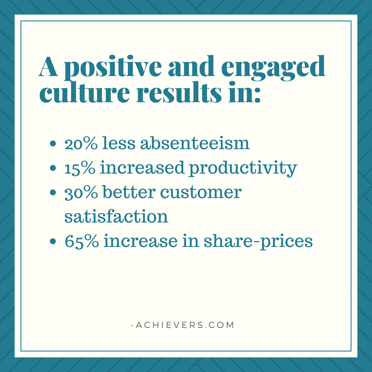
This means a positive reputation for your company, and likely a larger pool of applicants to choose from.
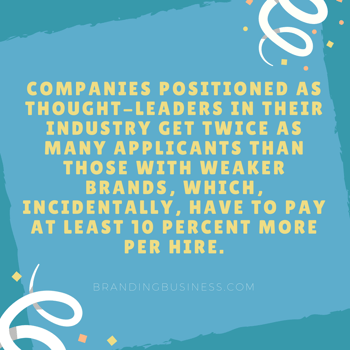
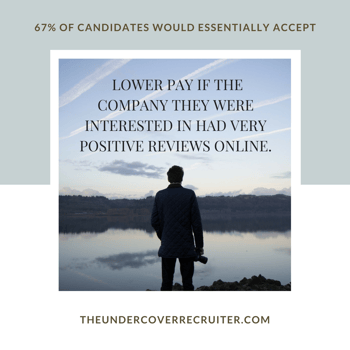
So, before you choose a recognition gift because it’s cheap, easy, or cool, remember to think about your recipient. Does it make sense for them? If not, then it won’t make sense for your business, either.
![]() Kristina Hublar is your friendly neighborhood Marketing Specialist at Bruce Fox, Inc., which means she is the person behind the keyboard for the emails, website, social media, and other marketing efforts. In her spare time, you’ll find her bobbing along to music while crafting, spending time with loved ones, or with her nose in a book.
Kristina Hublar is your friendly neighborhood Marketing Specialist at Bruce Fox, Inc., which means she is the person behind the keyboard for the emails, website, social media, and other marketing efforts. In her spare time, you’ll find her bobbing along to music while crafting, spending time with loved ones, or with her nose in a book.







